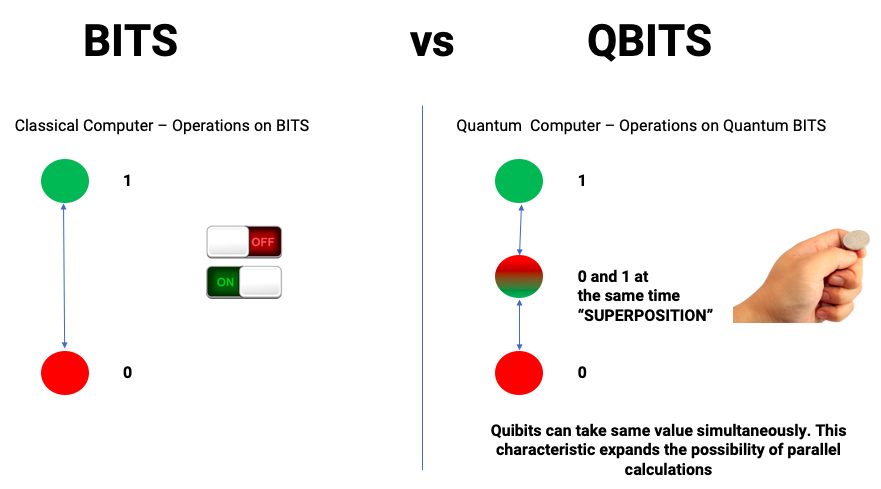Science & Technology
Majorana Zero Modes
- 12 Jul 2023
- 7 min read
For Prelims: Majorana Zero Modes, Quantum Computing, Qubits, Supercomputer, Antiparticle, Fermions, Positrons, Neutrinos.
For Mains: Majorana Zero Modes and its potential advantages in Quantum Computing.
Why in News?
Recently, Microsoft researchers announced a significant breakthrough in the creation of Majorana Zero Modes, a type of particle with potential implications for revolutionizing quantum computing.
- Microsoft researchers engineered a topological superconductor composed of an aluminium Superconductor and an indium arsenide Semiconductor.
- Their device passed a stringent protocol, including measurements and simulations, indicating a high probability of hosting Majorana zero modes.
- The topological gap protocol and observation of the conductance peak are considered strong evidence for Majorana zero modes.
What are Majorana Zero Modes?
- Majorana Fermions:
- All subatomic particles that make up matter are called fermions.
- In 1928, physicist Paul Dirac developed the Dirac equation to understand how quantum mechanics and the special theory of relativity could coexist.
- The Dirac equation described the behaviour of subatomic particles that moved at near the speed of light.
- This equation predicted the existence of antiparticles for each particle, leading to the discovery of the first antiparticle, the positron (or the anti-electron) in 1932.
- In 1937, physicist Ettore Majorana found that the Dirac equation allowed for particles that satisfied certain conditions to be their own antiparticles to be their own antiparticles.
- In his honour, fermions that are their own antiparticles are called Majorana fermions.
- Neutrinos are one type of particle that physicists believe could be Majorana fermions, although experimental proof is still lacking.
- Majorana Zero Modes:
- Fermions possess four quantum numbers, with one of them being quantum spin, which only has half-integer values.
- Bound states of fermions that are their own antiparticles are called Majorana zero modes.
- Majorana zero modes have been a subject of research for over two decades.
- Their unique characteristics make them promising for topological quantum computing.
What can be the Potential Advantages of Majorana Zero Modes in Computing?
- Majorana zero modes possess unique properties that make Quantum Computers more robust and computationally superior. Quantum computers currently use individual electrons as qubits, but they are fragile and susceptible to decoherence.
- Majorana zero modes, composed of an electron and a hole, can be used as more stable qubits.
- Even if one of the entities is disturbed, the overall qubit does not decohere, protecting the encoded information.
- Majorana zero modes offer topological degeneracy, allowing for the storage and retrieval of information from different topological properties, without easily losing the encoded information.
- Topology is the study of those properties of matter that don’t change when it undergoes continuous deformation – i.e., when it’s stretched, folded, twisted, etc., but not ruptured or glued to itself.
What is Quantum Computing?
- Quantum computing uses phenomena in quantum physics to create new ways of computing.
- Quantum physics explains the behavior of energy and material on the atomic and subatomic levels.
- Quantum computing involves qubits. Unlike a normal computer bit, which can be either 0 or 1, a qubit can exist in a multidimensional state.
- The power of quantum computers grows exponentially with more qubits.
- Classical computers that add more bits can increase power only linearly.
- Quantum computing has the capability to sift through huge numbers of possibilities and extract potential solutions to complex problems and challenges.
- The basic properties of quantum computing are superposition, entanglement, and interference.
- Superposition:
- It is the ability of a quantum system to be in multiple states simultaneously.
- The example of superposition is the flip of a coin, which consistently lands as heads or tails—a very binary concept. However, when that coin is in mid-air, it is both heads and tails and until it lands, heads and tails simultaneously. Before measurement, the electron exists in quantum superposition.

- Entanglement:
- It means the two members of a pair (Qubits) exist in a single quantum state. Changing the state of one of the qubits will instantaneously change the state of the other one in a predictable way. This happens even if they are separated by very long distances.
- Einstein called spooky ‘action at a distance’.
- Interference:
- Quantum interference states that elementary particles(Qubits) can not only be in more than one place at any given time (through superposition), but that an individual particle, such as a photon (light particles) can cross its own trajectory and interfere with the direction of its path.
- Superposition:
UPSC Civil Services Examination Previous Year Question (PYQ)
Prelims
Q. Which one of the following is the context in which the term "qubit" is mentioned?
(a) Cloud Services
(b) Quantum Computing
(c) Visible Light Communication Technologies
(d) Wireless Communication Technologies
Ans: (b)
Exp:
- Quantum Supremacy
- Quantum computers compute in ‘qubits’ (or quantum bits). They exploit the properties of quantum mechanics, the science that governs how matter behaves on the atomic scale.
Hence, option (b) is correct.






